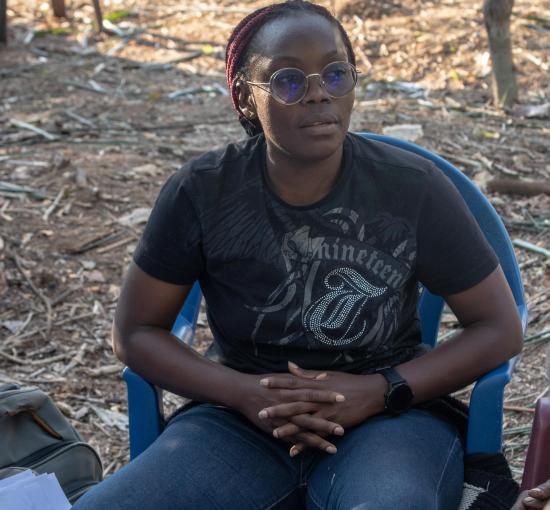Djomkam Fanny Marcelle
My journey in conservation biology began during university, where I earned a degree in animal biology. Initially torn between parasitology and microbiology, I chose to pursue a Master’s in 'Applied Ecology and Wildlife Management'. Transformative field trips to forest reserves deepened my commitment to wildlife conservation, merging academic studies with the enjoyment of documentaries. With over seven years of experience in integrated conservation and development projects, I focus on sustainable practices for communities near protected areas. Currently, as a Ph.D. candidate, I am assessing the impact of Baka hunting practices on the faunal dynamics of the Dja Wildlife Reserve, emphasizing the importance of indigenous knowledge in conservation efforts.
I am a Leventis fellow at the ICCS / Department of Biology at Oxford University and thus Associate Member of Merton College
My research focuses on wildlife conservation and the integration of traditional ecological knowledge into sustainable resource management. My interest in this topic was sparked by my involvement with the Ambassador Funds for Cultural Preservation program, part of SILK (School for Indigenous and Local Knowledge) project, where I have been working for over two years now.
These programs emphasize community engagement, allowing me to immerse myself in the cultures of Baka indigenous peoples. Through this experience, I discovered various facets of Baka culture, including their diverse forest foods, seasonal dietary practices, and intricate navigation techniques rooted in a profound understanding of plant and animal behaviours. This exposure has fuelled my desire to deepen my knowledge and contribute to the sustainable management of natural resources through the lens of indigenous wisdom.
My current research focuses on the contribution of Baka bushmeat offtake to the faunal dynamics of the Dja Wildlife Reserve (South-east Cameroon). I investigate how traditional ecological knowledge (TEK) informs their hunting practices and its impact on biodiversity within the reserve. By analysing the offtake rates of bushmeat, I aim to understand the role these practices play in defaunation and overall ecosystem health. Additionally, I assess how integrated conservation and development projects have influenced Baka hunting behaviours over time. This research emphasizes the importance of TEK in informing modern conservation strategies and fostering sustainable resource management.
Ultimately, I seek to promote collaboration between scientists and indigenous communities, ensuring that conservation efforts are respectful of and informed by local knowledge. By integrating scientific research with traditional insights, I aspire to enhance wildlife conservation and ecosystem management practices in the region.
Participatory Freshwater Conservation: Management guidelines for the Lake Ossa Wildlife Reserve; Zoological Society of London, 2017
La réserve de biosphère du Dja : entre espace d'opportunités et territoire en crise ; CIST 2023. Claude Tatuebu Tagne & Fanny Marcelle Djomkam
